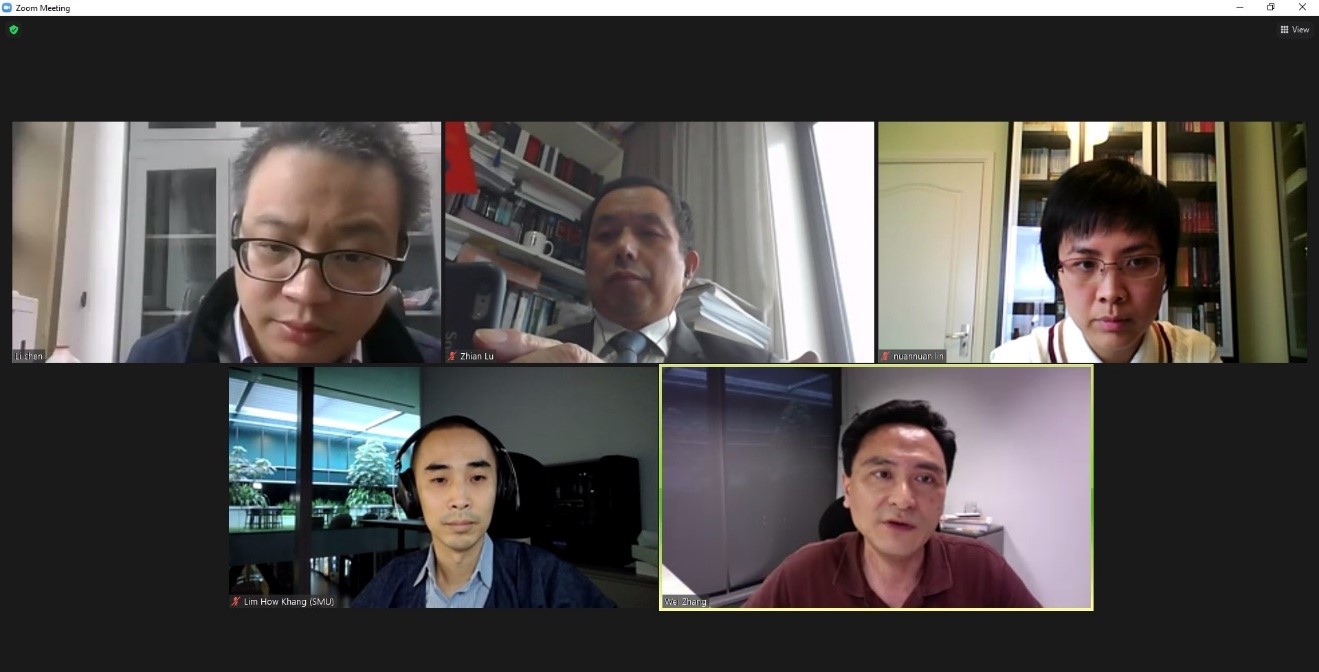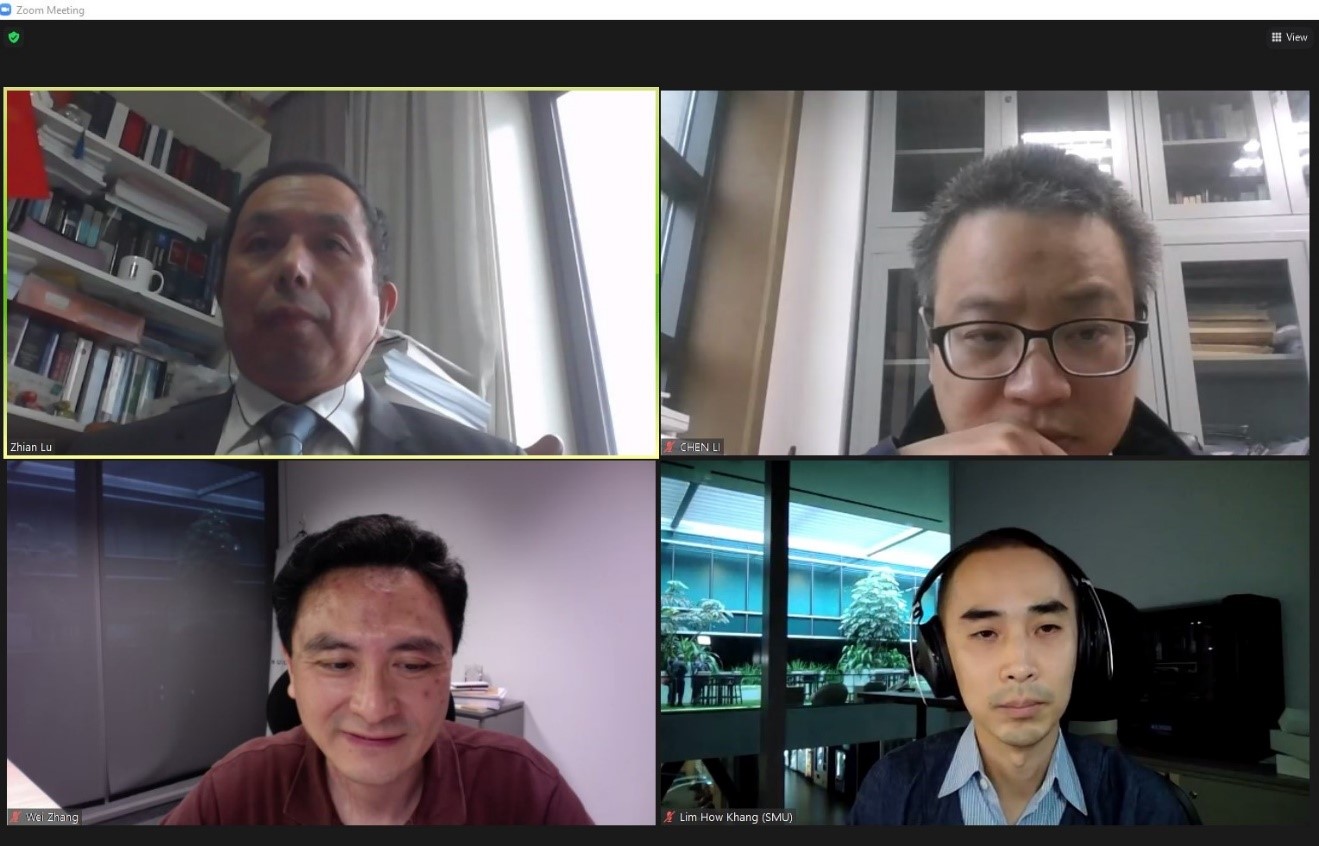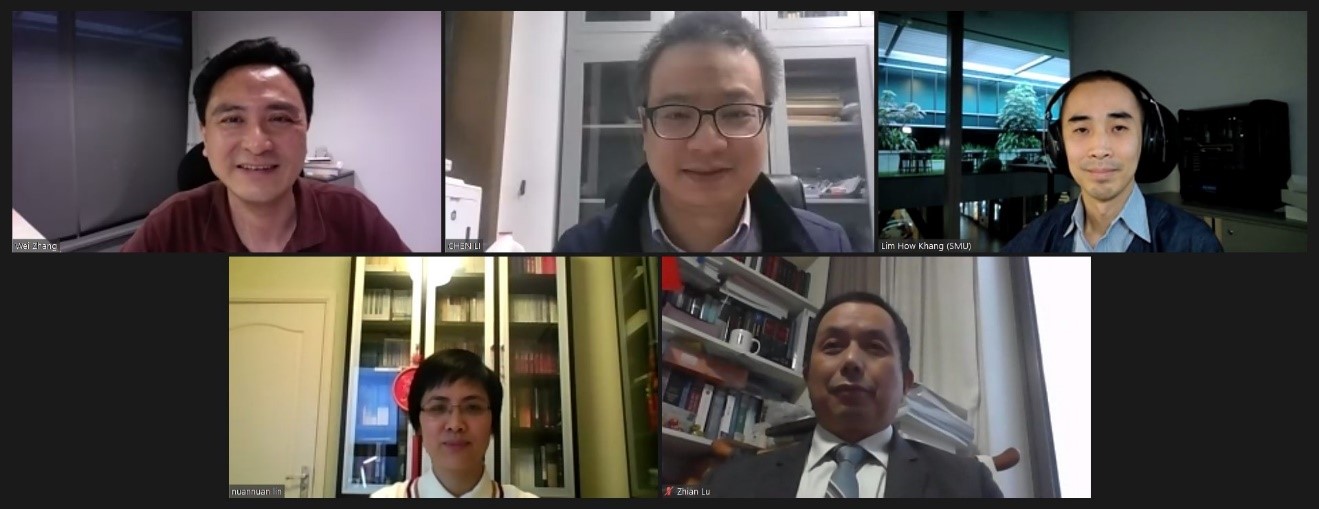On November 27, Singapore Management University (SMU) — Fudan University Webinar Series: "New Developments in Advanced Legal Education", the third in a series, was successfully held, with the theme on Law and Technology. The Webinar, co-moderated by Dr. Zhang Wei, Associate Dean of SMU School of Law, and Dr. Chen Li, Associate Professor of Fudan Law School, consisted of four presentations and discussions made by Lim How Khang, Assistant Professor of SMU School of Law, Lu Zhi’an, Associate Professor of Fudan Law School, Lin Nuannuan, Assistant Professor of Fudan Law School, and Zhang Wei, Assistant Professor of SMU School of Law.

Assistant Professor Lim How Khang presented an Introduction to Computational Law, which allows for laws, rules, and agreements to be expressed in code. Computational law covers Smart Statutes and Smart Contracts. The former is called “rules as code” in some countries. Prof. Lim used three examples – New South Wales Government in Australia, New Zealand government’s “better rules - better outcomes”, and a French program – to illustrate rules-as-code programs which may help government bodies digitize regulation for easier compliance. The features and advantages of Smart Contracts were also be introduced by Prof. Lim. For Smart Contracts, contractual parties can enter into agreements and obligations that are embedded into the blockchain and run on the blockchain. This, therefore, gives parties some certainty.
Professor Lu Zhi’an, the second presenter, presented a topic on Human-rights Approach in AI Governance. He indicated the fact that artificial intelligence is widely used in our life, and explored the adverse impact of artificial intelligence on human beings from different perspectives such as privacy, security, freedom, and human rights. His presentation centered on the core question of how to regulate AI. By introducing the EU Ethics Guidelines for Trustworthy Artificial Intelligence, Dr. Lu explored the shortcomings of the current ethics-based approaches, and argued that a human rights-based approach should be used to prevent or mitigate the adverse impact of AI.

Assistant Professor Lin Nuannuan’s topic was on Legal Protection for Health Privacy and Security in the Age of Big Data. She began her presentation with the introduction of the concept of privacy and its transformation, and, then, explained why health privacy has generated so many concerns and discussions in the age of big data. She used three examples—that is, Personal Information Protection Act (draft), General Data Protection Regulation, and Health Insurance Portability and Accountability Act—to analyze the limitations of legal protection for health privacy and security, and concluded her presentation with some recommendations for the improvement of privacy protection.
The last presentation was made by Assistant Professor Zhang Wei. His topic, What is Bitcoin, Legally?, centered on the question of how to regulate the bitcoin as a financial instrument. By briefly introducing what bitcoin legally is, Prof. Zhang then raised two questions as to how to legally categorize bitcoin and how to regulate bitcoin? Prof. Zhang reviewed the basic principles of the traditional regulations of securities, commodities, and currencies, and further analyzed to what extent bitcoin can be fit into the existing regulatory frameworks. Taking a neoclassical-economics position, Prof. Zhang argued that, when trying to answer the question of what bitcoin legally is, we try to from a legal perspective to answer what kind of market failure we may encounter in trading with bitcoin.

After each presentation, the speakers from both universities conducted a meaningful dialogue and idea exchange, which embodied and enhanced the cooperation between the two law schools.






